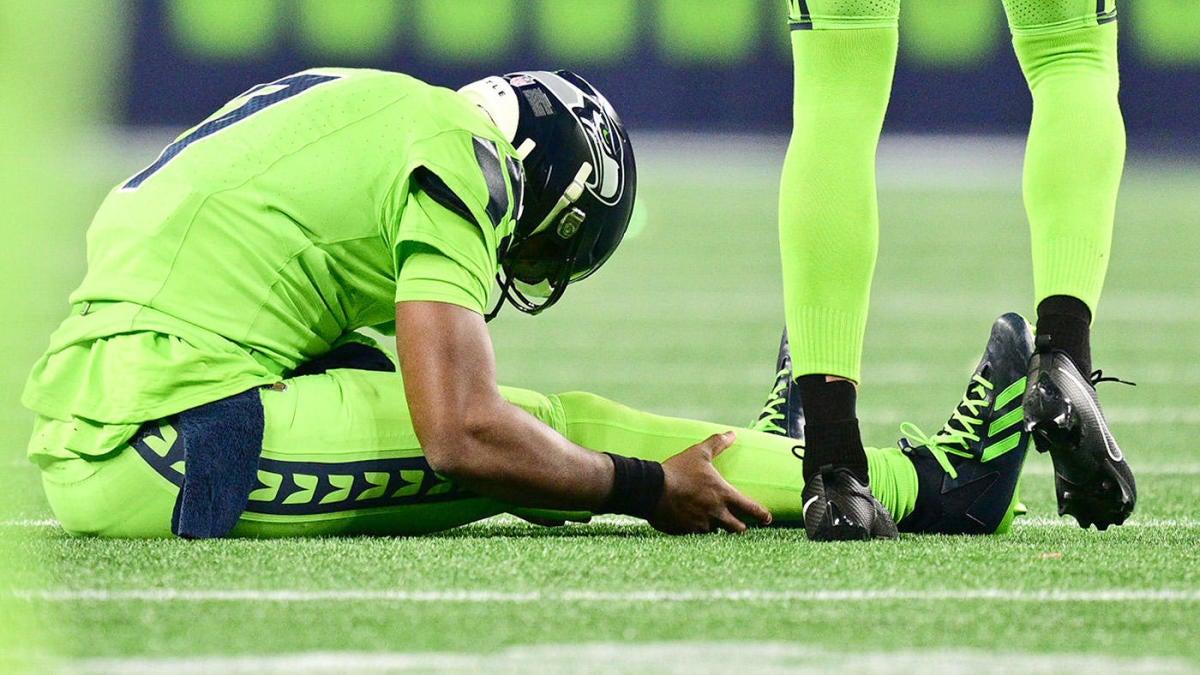World
Up from Urkel, World-Famous Nerd

Toward the end of Jaleel White’s new memoir, “Growing Up Urkel,” the actor runs through a list of regrettable life experiences. There’s an agent he wishes he’d never worked with, and another he wishes he’d followed to the ends of the earth. He wishes he’d pursued a small part in a Jim Carrey vehicle. He didn’t really need to finish college, but he did so at the urging of his parents. If he could do it again, he’d consider getting into U.C.L.A. “the win,” quickly move on, and stop splitting the attention that rightly belonged on his career. As soon as he felt the “creeping sense of dislocation” that estranged him from his fellow-students, try as he might to act “normal,” he should have packed his bags and gone back to his admittedly unconventional life.
The name of that chapter is “There Are No Do-Overs,” but the book vibrates with palpable regret. “I’m not bitter,” White says. Then, reversing himself: “Okay . . . maybe a little.” White, who grew up acting, was already on a career path before he’d developed a mechanism to make his own choices. The term “child star,” with its intimations of troubled glamour, doesn’t always convey how much of a grind such kids endure. Starting at the age of four—he learned to read early, which helped him get gigs—White starred in commercials for Pepsi, Oreos, and Jell-O Pudding Pops. His job on the sitcom “Family Matters” was supposed to be a quick guest role. But, as the earnest, klutzy, tenderhearted nerd Steve Urkel, White hit it off with audiences and found himself suddenly at the center of the star-making machine.
“Family Matters” premièred in 1989. It was a spinoff of the show “Perfect Strangers,” whose workplace setting was a Chicago newspaper. Harriet Winslow, played by the versatile Jo Marie Payton, works as an elevator operator there. “Family Matters” began as a formulaic sitcom following the doings of the Winslow family. Harriet’s husband, Carl (Reginald VelJohnson), is a Chicago police officer who watches the family’s budget like a hawk and occasionally, under stress, blows his top. Their children Eddie (Darius McCrary) and Laura (Kellie Shanygne Williams) are regular, warm-blooded products of sitcom America: he pines for girls, and she frets over her grades. In early episodes—before Urkel, the next-door neighbor, takes over the focus and the direction of the show—the Winslows talk a surprising amount about bills.
“Family Matters” started out as a working-class answer to “The Cosby Show” (whose now disgraced creator, Bill Cosby, became a kind of distant mentor to White). It wasn’t the first time a not so tony Black family had appeared in a sitcom: the popular Norman Lear show “Good Times,” which premièred in 1974, took place in a housing project, also in Chicago. Nor would it be the last: the undersung early-nineties show “Roc” featured the brilliant Charles S. Dutton as a sanitation worker in Baltimore. Had Jaleel White never shown up, it’s possible that “Family Matters”—which at first struggled to find a voice and a tone—would have flopped. Or perhaps it would have deepened its connection to the socioeconomic moorings of its characters. A show about a hotheaded Black urban cop—a reflection of Lear’s interest in adapting social and political themes to the necessities of TV situation comedy—might have had plenty to say, in the fullness of time, to the America of Rodney King and O. J. Simpson, in Los Angeles, and the Crown Heights riots, in Brooklyn.
In an uncanny turn, though, “Family Matters” echoed, if only cosmetically, a different quirk of Lear’s televisual career. The unsparing social realism of “Good Times” was increasingly undercut by the exuberance of J. J. Evans, played by the comedian Jimmie Walker. J.J.—the son of Florida and James Evans, played with pathos and cold humor by Esther Rolle and John Amos—is a jive talker, a peacocking dispenser of bombast whose catchphrase, “Dyn-o-mite!,” became a constant refrain on the show. It could sometimes feel as if J.J. were in a different show than Florida and James, and soon Rolle and Amos expressed their discontent with the arc of Walker’s character. J.J., they thought, was a buffoon, a big joke, a cooning distraction from the show’s urgent originary idea.
Much like Jimmie Walker, Jaleel White delivered a performance that would, for good or ill, turn the meaning of an entire sitcom on its axis, and bring a new Black male archetype to the culture’s doorstep. Don’t ask me how I know, but it was just about impossible for a bookish, bespectacled Black kid in the nineties to show up to school and avoid being called Urkel. Steve was sweet and smart and brave, especially in his constant, seasons-long, vaguely Pepé Le Pew-ish romantic pursuit of Laura Winslow. He snorted when he laughed and was always knocking shit over. He wore suspenders and saddle shoes and improbably tight jeans. He was a whiz at math and always seeking friends, but almost nobody—especially tempestuous Carl—seemed too jazzed to have him underfoot.
Urkel was a walking social death. And yet his constant good cheer, powered by White’s admirable comic timing and shameless mugging, made him a favorite of audiences and, quickly, a permanent member of the cast. White, who was twelve when the show began, was a middle-class kid from Southern California whose biggest concerns were basketball and Sega Genesis. He had large feet for his age and had recently got braces—the better to portray the world’s most famous nerd. He hadn’t been thinking about Jimmie Walker when figuring out how to play Urkel: he’d have been too young to notice any similarity between the two figures. (White doesn’t mention J. J. Evans or “Good Times” in his book.) Instead, he used as models other dorky eccentrics of the moment—Rick Moranis, Pee-wee Herman, and Martin Short’s “Saturday Night Live” character Ed Grimley. He perfected an unwieldy, bowlegged walk and hiked his pants past his navel; he made his face stretch in all kinds of inscrutable ways. He had his own catchphrase, songlike and nasal: “Did I do that?”
Soon, White was famous, and had no idea how to handle it. Now, in “Growing Up Urkel,” he mostly remembers the downsides. He noticed how adults would offer him perks like courtside seats at N.B.A. games, only to use their proximity to him to achieve their own social-climbing ends. He recalls how the parents of the other young stars on the show became jealous of his increasingly large role. He devotes several pages to his co-star Jaimee Foxworth, who played Judy, the younger Winslow daughter. According to White, her mom didn’t value the important things in life—the stuff beyond show biz—as much as his did. “Gwyn Foxworth and Gail White could not have been more diametrically opposed as mothers,” he writes. “Education didn’t seem to be of high importance to Gwyn Foxworth.” Jaimee took cues from her mom and tried to ostracize White, making fun of him on the set. According to White, Foxworth left “Family Matters” after expressing in no uncertain terms her lack of interest in the show’s mandatory schooling for minors. “If Jaimee were as funny in the role of Judy Winslow as she was in our studio classroom, she would have never left,” White says.
White’s got barbs for other castmates, too, several of whom have, in later years, labelled him “difficult” to work with. He makes a meal, for instance, of Jo Marie Payton’s increasingly improbable excuses for being late to table reads. He doesn’t seem to have much enjoyed his co-workers.
Those digs notwithstanding, White trains most of his attention on Hollywood’s backstage—those purgatorial offices where decisions get made. He was—and evidently remains—besotted with powerful executive types like Les Moonves, of CBS, and the Disney honcho Bob Iger. He contrasts their tough, frank speech, decisive action, and relative fairness with a far more common show-business condition—weak leadership and dishonest talk. When he describes a high-school basketball coach who didn’t, in White’s opinion, give him a fair shake (he sat on the bench), he compares the man with Iger, and asserts that “the dichotomy of those two leadership experiences is precisely what makes me uniquely who I am.”
White catalogues, at length, how agents left loose language in his contract, costing him hundreds of thousands of dollars, and how the naïveté of his parents sometimes set him back. “My deal on ‘Family Matters’ was a home run deal for a kid whose parents couldn’t see past college,” he writes. By the end of the show, in 1998, at the point of peak Urkel-mania—dolls, billboards, cereal boxes—he focussed on being a “trooper,” doing promotional events that would never yield him a profit. He wanted to write and produce, but nothing ever seemed to work. And, because of Urkel’s popularity, he’d lost control over the one thing that felt like it might be truly his: the world-famous performance that had made his name.
In one harrowingly awkward scene, White writes, with the wincing pacing of a horror movie, about a U.C.L.A. course he took called History of Broadcast Journalism in America:
The moment is easily the most revealing of the book. White can’t see himself clearly, he can’t see Urkel, and nobody on the outside can see them, either. It’s an echoing reiteration of an earlier scene, when the grownup White watches a home video of himself, as a kid, being obnoxious to his parents as they settle into a penthouse suite at the Plaza Hotel. “You used to get beside yourself sometimes,” his mother said. He hadn’t remembered. Fame, here, is a way to lose your sight. In a moment of despair, White tells a reporter, “If you ever see me do that character again, take me out and put a bullet in my head and put me out of my misery.”
It’s possible to read “Growing Up Urkel” as a litany of complaints—about child stardom, about typecasting, about the fickleness of show business. White didn’t drink or do drugs until he was an adult, so the usual compensations of a celebrity memoir—parties, wild gossip, rampant sleeping around—are nowhere to be found. The book is, instead, a sober Inferno, a hellish manual of cautionary tales, with the increasingly frustrated White as a Dantean guide into the hot depths. White seems to be waving a red flag for aspirants who might follow in his wake.
He’s had a downright weird life: He once played basketball against an erratic R. Kelly, whom he was trying to recruit to star in a rom-com White wrote, called “R. Kelly Stole My Girlfriend.” (Between Kelly and Cosby, he had too many brushes, at far too young an age, with sexual abusers of the worst kind. He doesn’t claim that anything bad ever happened to him, but the names of these awful men constitute a warning all their own.) He took a date by limo to the Mall of America, for a late-night showing of “Schindler’s List.” Everybody’s always calling him Urkel. Now he’s selling cannabis.
A book more historically angled might have dwelled longer on Steve Urkel’s lasting TV legacy: a mathematically inclined eccentric like Sheldon, Jim Parsons’s character on “The Big Bang Theory,” carries some of his DNA. And it’s possible that multivalent newcomers such as Quinta Brunson, the creator, writer, and star of “Abbott Elementary,” have learned from him—if only by photonegative contrast—to maintain tighter control of their art, closer contact with their dignity.
The book isn’t just a lament. White tells the story of a meeting with a TV executive who wants to make a reboot of “Family Matters.” Steve would be a grownup, finally married to Laura, and they’d be raising a conspicuously Urkel-ish kid. White’s not interested. Instead, he’d like to cast some kid to play himself, to finally tell the world how hard it was to go to public school while making “Family Matters,” how strange his life on TV was. The executive isn’t interested. The book, it’s clear, is not so much literature as a work of proto-TV, a barely disguised treatment for the show to come. I’m sure we’ll hear, one of these days, how he got the deal done. ♦







